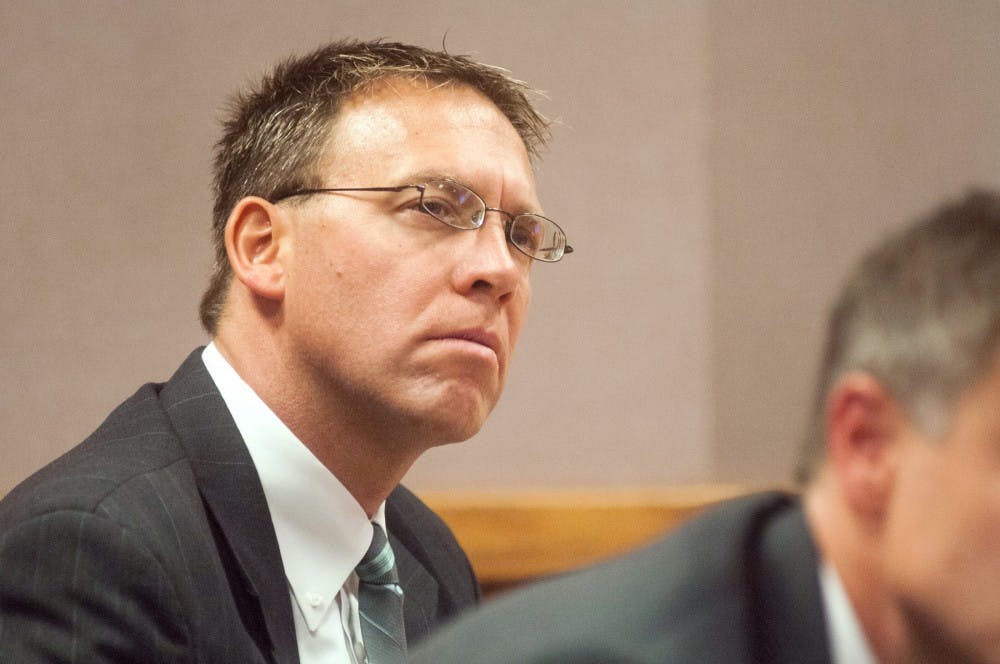A Michigan law that required police to obtain a warrant before forcing State Rep. Bob Genetski to take a blood test for evidence of drunken driving now might be implemented nationally, pending a U.S. Supreme Court ruling.
The Supreme Court held oral arguments last week, but are expected in June to reach a decision on whether or not police should be able to draw blood samples from suspected drunken drivers without a warrant or consent from the driver, which currently is illegal in Michigan.
If found unconstitional, the ruling would overturn Michigan law.
Some police worry that waiting for a warrant might give time for a suspect’s blood alcohol level to drop below the legal limit.
But East Lansing attorney and drunken driving case specialist Mike Nichols, who represented Genetski, R-Saugatuck, after he was arrested for drunken driving near campus a year ago this Saturday, isn’t so sure.
Nichols said some Michigan judges are misapplying a previous court ruling and allowing warrantless blood draws in certain cases because they worry blood alcohol content, which would be used as evidence, would fall below the legal limit before a police could acquire a warrant.
Nichols said it is unlikely a driver’s blood alcohol content will fall within the time a judge grants an officer a warrant.
The legislator and chairman of the House Appropriations Subcommittee on Higher Education was found guilty and sentenced to complete 40 hours of community service and pay $1,100 in fines.
After his arrest, Genetski reportedly refused to take a mandatory Breathalyzer test.
“Upon my refusal I was arrested and eventually lodged at the Ingham County Jail,” Genetski said in a Jan. 20, 2012 statement.
Genetski complied with a court-ordered blood test about two hours after his arrest. Two tests found his blood alcohol content was .088, which is above the legal limit of .08 for drivers 21 and older.
Nichols said if police had not sought a warrant in the Genetski case, police might not have been able to use the blood test in the court proceedings.
MSU police Sgt. Shaun Mills said testing drivers’ blood usually is a good way to collect physical evidence of drunken driving.
“It’s pretty definitive and pretty specific (and) pretty concrete,” he said.
A safe way to calculate how long it takes blood to leave the system is one hour per one drink, according to healthguidance.org.
Nichols said refusing a blood test doesn’t come without a cost.
“There are penalties for the person if they refuse, but those relate to the driving privileges,” he said.
Support student media!
Please consider donating to The State News and help fund the future of journalism.
Discussion
Share and discuss “US Supreme Court to rule on drunken driving law” on social media.







